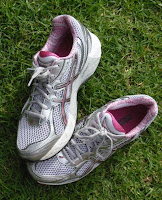 Book Review: No Ordinary View, by Naomi Reed
Book Review: No Ordinary View, by Naomi ReedAbout a year ago I read and reviewed My Seventh Monsoon, by Naomi Reed. I came back to it a few months ago because I was working through Ecclesiastes and recalled that she had structured her book around the seasons of life, just like the writer of Ecclesiastes does in chapter 3. I enjoyed reading it again just as much as the first time.
It has been my plan this year to also read her follow-up book, No Ordinary View. Partly because I loved the first book and wanted to see what happened, but also because she is one of the speakers at next year’s CMS-SA Summer Encounter and I wanted to read it before I heard her speak.
This book retells the three years she and her family spent in Nepal, serving as cross-cultural workers training native physiotherapists. Her husband did most of the training, and she primarily home-schooled their 3 boys. All of this took place in a country suffering civil war, poverty and monsoons of continuous rain lasting for months.
She has a real gift for recounting events in a way that is both interesting and engaging, and then reflecting and seeing what she learnt about God in that time, what He taught her and how she grew.
In the middle of their term, she found herself becoming increasingly dissatisfied with things, including the requirements of home schooling – she found herself desiring patience:
The civil war came very close to them at times, requiring evacuation from their home. This taught her that she had come to treat her home as a place of refuge rather than God:
They also climbed some of Everest, which again made her think about her spiritual journey:
It’s a great read, very interesting and at times quite exciting. But, as I said, it’s her reflections of the events of their lives that really got me thinking. Well worth a read.
It has been my plan this year to also read her follow-up book, No Ordinary View. Partly because I loved the first book and wanted to see what happened, but also because she is one of the speakers at next year’s CMS-SA Summer Encounter and I wanted to read it before I heard her speak.
This book retells the three years she and her family spent in Nepal, serving as cross-cultural workers training native physiotherapists. Her husband did most of the training, and she primarily home-schooled their 3 boys. All of this took place in a country suffering civil war, poverty and monsoons of continuous rain lasting for months.
She has a real gift for recounting events in a way that is both interesting and engaging, and then reflecting and seeing what she learnt about God in that time, what He taught her and how she grew.
In the middle of their term, she found herself becoming increasingly dissatisfied with things, including the requirements of home schooling – she found herself desiring patience:
As I fixed my eyes on the horizon, I was aware of only one thought. “You can desire it. You can ask for it. You can break down and cry out load. But that’s not how you get patience. The only way to grow in patience is to walk a path where patience is required. It comes when it’s practiced.” There were no easy answers. There were no easy solutions. I breathed in deeply and returned to the stage where I would learn it. (p84)I found her honesty refreshing. While my challenges in life are far less, I return to this thought often as I parent and I reflect on the patience required in such a role. It’s been very helpful.
The civil war came very close to them at times, requiring evacuation from their home. This taught her that she had come to treat her home as a place of refuge rather than God:
And then as I sat there that morning, I realised that in most part, I had put my confidence in almost everything but the Almighty God. I hadn’t normally admitted to it, I had just done it very quietly. I had put my confidence in my home, my husband, my profession, my own ability to problem solve. But mostly, I had put my confidence in my home. I had though that my home was my refuge. I had thought that the walls could keep out the enemy and provide us with a place of safety. I thought that I could be confident as long as I was within my home. [then they evacuated] … I realised that it was the first time that God alone was my refuge. My home had become as unsafe place to be, but in losing my home, I had found refuge in God. And I realised in that moment, I exchanged the theoretical understanding of his presence to the comfort of the tangible. (p119)
They also climbed some of Everest, which again made her think about her spiritual journey:
As I stared out at the physical path ahead, the parallels with my spiritual journey spoke to me. If in my walk with God I have a destination, then right now today, I’m further along the road that I was yesterday… As I sat facing the tallest mountain in the world and thinking about the route to its summit, I was reminded that the route I walk with God is also a path, a path with both a beginning and a destination. And the destination is important. It’s the only answer that counts. Heaven. (p131)
It’s a great read, very interesting and at times quite exciting. But, as I said, it’s her reflections of the events of their lives that really got me thinking. Well worth a read.




